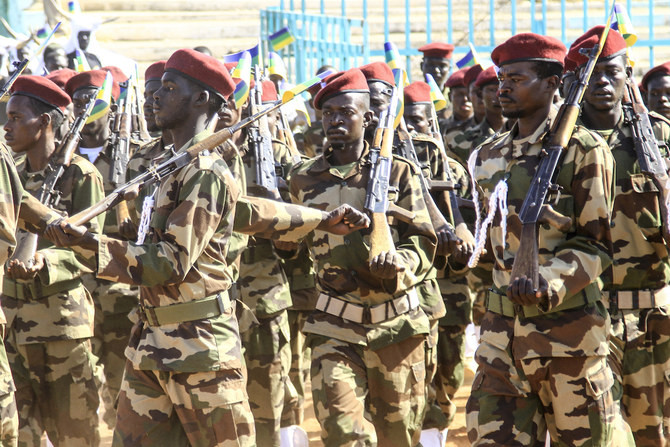Saudi Arabia has expressed deep concern over the ongoing security incidents in Lebanon, reiterating its warning regarding the risks of escalating violence in the region and its potential repercussions on security and stability. The Kingdom urged all parties to exercise maximum restraint and safeguard the region and its peoples from the threats of war, the Saudi Press Agency reported on Tuesday.
Saudi Arabia emphasized the importance of preserving Lebanon's stability and upholding its sovereignty in accordance with international law. The Kingdom called upon the international community and influential stakeholders to fulfill their roles and responsibilities in resolving conflicts in the area.
This statement comes amidst heightened tensions in the region following a dramatic escalation of the conflict between Israel and the Iran-backed Hezbollah group in Lebanon. Israeli strikes on Monday resulted in the deaths of over 490 people, including more than 90 women and children.
Saudi-Lebanese Talks on Lebanon's Situation
Saudi Foreign Minister Prince Faisal bin Farhan bin Abdullah held talks in New York on Wednesday with his Lebanese counterpart Abdallah Bou Habib. Meeting on the sidelines of the United Nations General Assembly, they discussed the latest developments in Lebanon in the wake of Israel’s launching of intense strikes against Hezbollah.
The two ministers discussed the danger of the conflict in Gaza expanding in the region, stressing the importance of preserving Lebanon’s security and respecting its sovereignty in line with international law.
A New Era of Media Policy in Saudi Arabia
The recent developments in Lebanon are not the only regional challenges that Saudi Arabia has faced. In the second installment of the memoirs of Saudi statesman Sheikh Jamil Al-Hujailan, Saudi Arabia’s first Minister of Information, he recounts the historic moment he was asked to announce the deposition of King Saud and the pledge of allegiance to Crown Prince Faisal as the new king.
The Story Behind the Broadcast Announcing King Saud's Removal
Al-Hujailan was summoned by Prince Khalid, who would later become Crown Prince, along with Prince Fahd, the Interior Minister, and Prince Musaid, the Finance Minister, to deliver the statement. Al-Hujailan recalls that one of the most difficult moments of his career was when he was asked to announce King Saud’s removal and Crown Prince Faisal’s ascension to the throne.
Years later, Al-Hujailan recalls King Faisal’s reaction to the news of King Saud’s death in Athens in 1969. Asharq Al-Awsat is exclusively sharing excerpts from Al-Hujailan’s memoirs, titled “Jamil Al-Hujailan: A Journey Through the Era of Seven Kings,” which will be available at the Riyadh International Book Fair.
Al-Hujailan recalls that one of the most difficult moments of his career was when he was asked to announce King Saud’s removal and Crown Prince Faisal’s ascension to the throne. Ironically, the joint session where this decision was made took place in the same dining hall where Al-Hujailan had translated for King Saud and the Spanish foreign minister 12 years earlier.
Al-Hujailan recalled: “On the morning of November 2, 1964, a joint session of the Council of Ministers and the Shura Council took place at Al-Hamra Palace, better known as the Red Palace, in Riyadh.”
“Chaired by Prince Khalid bin Abdulaziz, the members reviewed a letter from the Al Saud family and a statement from religious scholars supporting the removal of King Saud and the pledge of allegiance to Crown Prince Faisal as the new king. The decision was unanimously approved.”
A statement announcing the removal and pledge was prepared for broadcast. At the time, the only radio station in the Kingdom was in Jeddah, as Riyadh did not yet have one. Al-Hujailan remembers discussing the matter with Prince Khalid, Prince Fahd, the Interior Minister, and Prince Musaid, the Finance Minister. He was asked to handle the broadcast, to which he responded that he would send it immediately to the Jeddah station for an exceptional airing before the news bulletin.
Prince Khalid interjected, telling Al-Hujailan that he will be announcing the news. He was supported by Prince Fahd and Prince Musaid.
Al-Hujailan expressed his hesitation, noting that it was unusual for a Minister of Information to announce news about Saudi Arabia. However, the three princes insisted that Al-Hujailan take on this responsibility.
Al-Hujailan felt uncomfortable, as the removal of King Saud was a family matter, and he didn’t want his broadcast to imply any personal involvement, especially with King Saud waiting to hear the news. Al-Hujailan worried that King Saud would not forgive him for delivering such a significant announcement.
It was decided that Al-Hujailan would travel immediately to Jeddah with the statement for broadcast. Around 11 a.m. Riyadh time, Al-Hujailan boarded a Boeing 707, the only modern plane in Saudi Arabian Airlines at the time. On the flight, Al-Hujailan wrestled with his thoughts about what he was about to do.
As Al-Hujailan prepared to read the statement announcing King Saud’s removal, he reflected on his life’s pivotal moments. This was a challenge he had not sought, and he felt a deep sense of embarrassment. While Al-Hujailan viewed King Saud’s removal as a family issue, he understood the broader implications of announcing it. The world would be taken by surprise, and the announcement could lead to speculation and political misinterpretations. This is why it was vital for the Minister of Information to deliver the statement.
The removal of King Saud was not just another seasonal military coup that often draws skepticism and laughter in the Arab world. It marked a significant political event in a country known for its stability, where the royal family has upheld familial unity since its founding by King Abdulaziz.
The Al Saud family has always recognized the responsibilities of governance, prioritizing national stability and avoiding internal conflict. This was not simply news of a prince’s death or a minister’s dismissal; it was the ousting of a reigning king and the pledge of allegiance to a new monarch. Given its significance, such an announcement needed to be made by the Minister of Information.
On that historic day, Al-Hujailan announced the statement live from the radio studios in Jeddah on November 2, 1964.
A New Era of Media Policy
In March 1963, King Faisal called Al-Hujailan from Kuwait to appoint him as Saudi Arabia’s first Minister of Information, marking the start of a new media policy in the Kingdom. The Yemeni revolution and the Saudi-Egyptian conflict that followed posed a major challenge for Saudi media, leading the government to reassess its press and media strategy. It soon became clear that the existing media was not up to the task, and there was a need for a stronger, more capable media to meet the demands of the time.
Al-Hujailan became Saudi Arabia’s first Information Minister during a challenging time, both domestically and regionally. He faced numerous crises as he established the new ministry. The Kingdom was dealing with increased internal responsibilities and a major political conflict with Egyptian President Gamal Abdel Nasser over Yemen. It was also in a silent ideological struggle with the Arab left, supported by the Soviet Union, which opposed conservative regimes in the region.
The region was undergoing major changes that disrupted the balance of power and complicated Arab relations. Under King Faisal, Saudi Arabia openly condemned communism, a stance that surprised many observers. The Soviet Union was frustrated by Saudi Arabia’s refusal to establish diplomatic relations, despite Moscow’s repeated efforts.
This stance also angered Soviet-aligned Arab leftist parties, who joined in a covert campaign against Saudi Arabia, accusing it of being too close to the United States and abandoning Arab nationalist goals. Yet, Saudi Arabia stood firm as a “fortress” against Soviet influence in the region.
Looking Ahead
The current situation in Lebanon is a reminder of the complexities and fragility of the Middle East. Saudi Arabia's concern over the security incidents in Lebanon highlights the Kingdom's commitment to regional stability. The international community must work together to prevent further escalation of the conflict and to support a peaceful resolution.


















